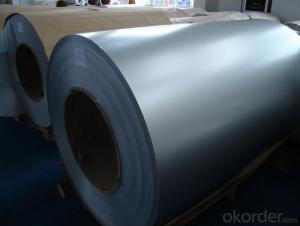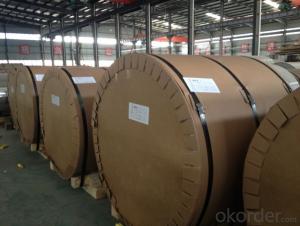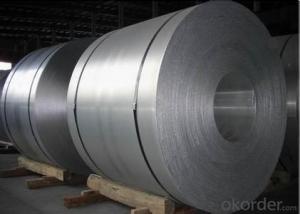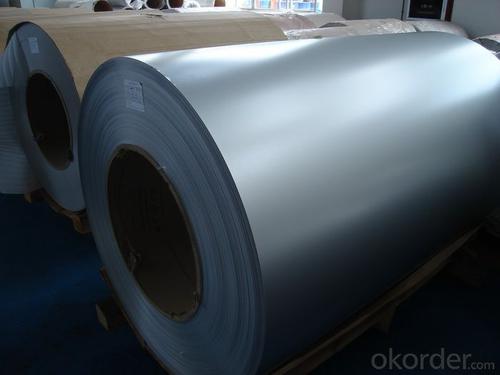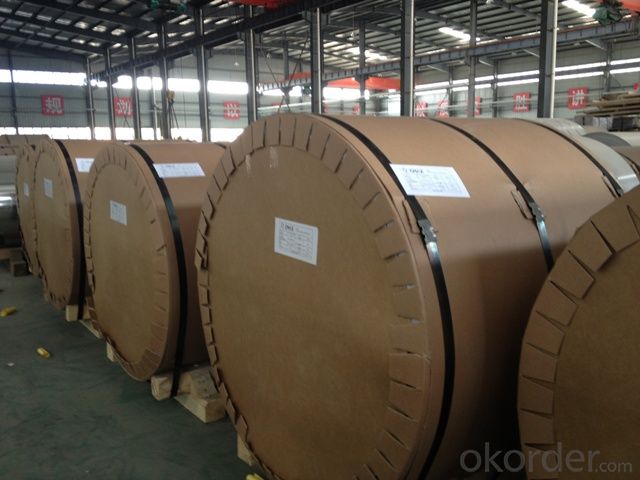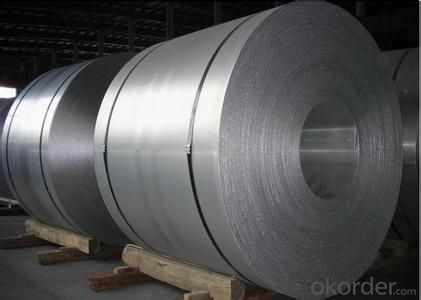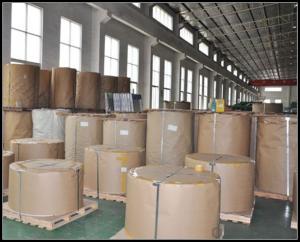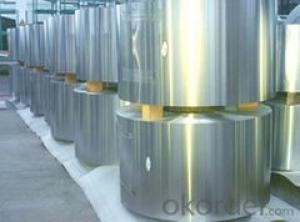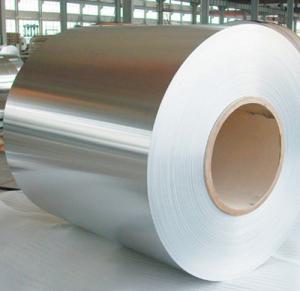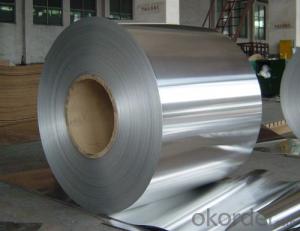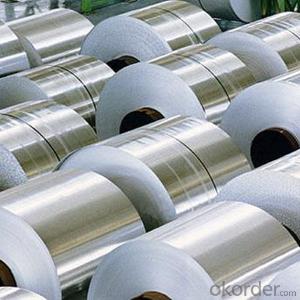Aluminum Alloy Coil for Construction - Plain Aluminium Coils
- Loading Port:
- Shanghai
- Payment Terms:
- TT OR LC
- Min Order Qty:
- 5 m.t.
- Supply Capability:
- 100000 m.t./month
OKorder Service Pledge
OKorder Financial Service
You Might Also Like
1.Structure of Plain Aluminium Coils Used for Construction
Plain aluminium coils used for construction are good at ductility, heat conductivity, anti-corrosion and moisture resistance. They are widely used in roofing, electronics, instruments, lighting decoration, packing, decoration, curtain wall, sandwich panels, boats, etc.
Plain aluminium coils used for construction can meet the highest standards while save the cost. Our strong quality control term bring you the most-qualified products.
2.Main Features of Plain Aluminium Coils Used for Construction
•High intensity
•Easy to be processed and shaped
•Weather resistance
•Anti-pollution & environment protection
3. Plain Aluminium Coils Used for Construction Images
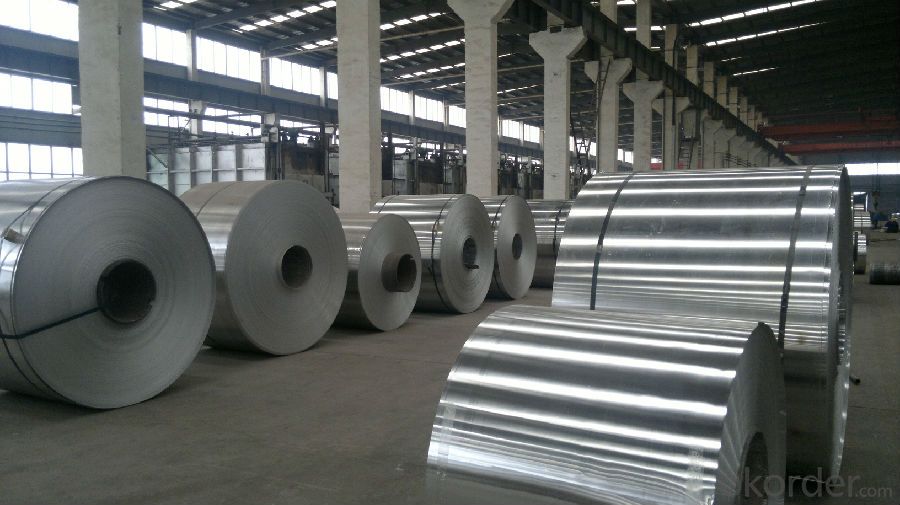
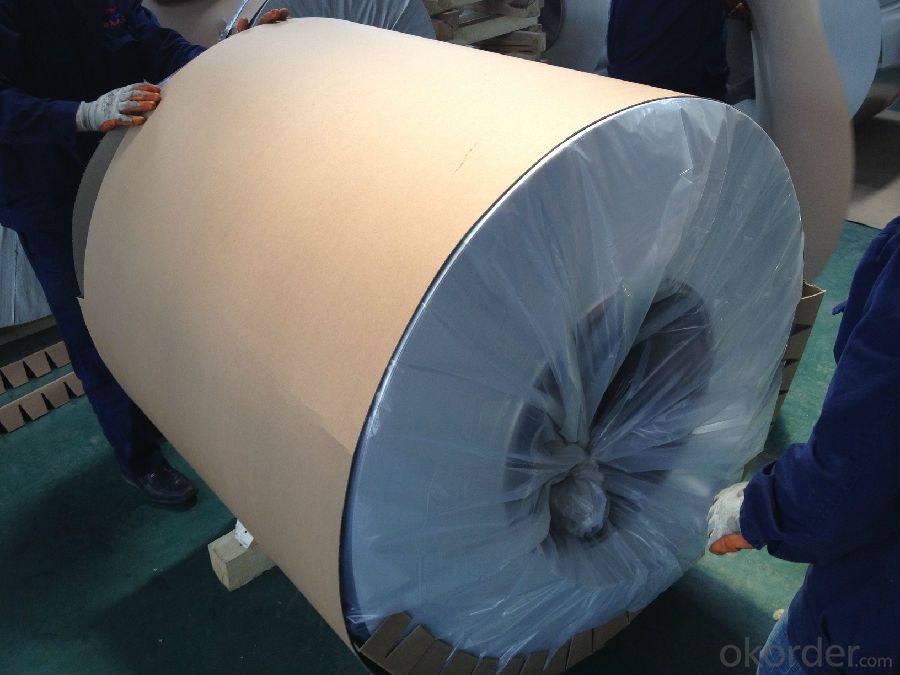
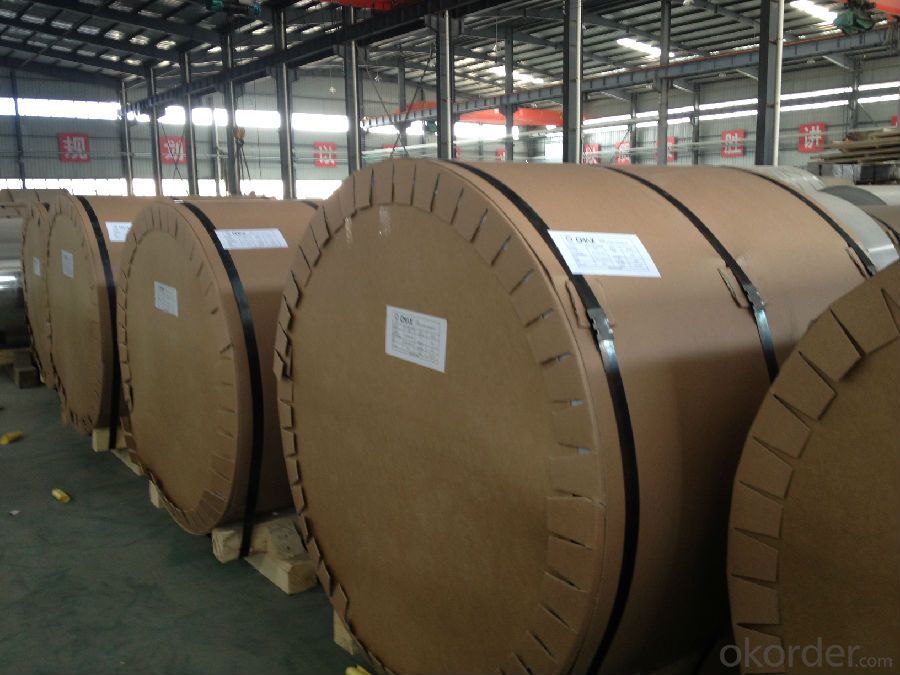
4.Specification of Plain Aluminium Coils Used for Construction
Alloy | AA1050,AA1060, AA1070, AA1100 |
Temper: | H12, H14, H16, H18, H22, H24, H26, H32,HO, F |
Thickness: | 0.10-500mm |
Width: | 10mm- 2200mm |
Standard: | GB/T3880-2006, ASTM, ISO, EU standard |
Special Specification is available on customer’s requirement | |
5. FAQ
A.What about inspections to guarantee quality?
For each order for Aluminum Coils, we will arrange strict inspection for raw materials, inspection during production and inspection for finished goods.
With requirement of customers, we also can arrange the third party inspection.
B.What about delivery?
We will put order for Aluminum Coils in production schedule after order gets confirmed against copy of TT or L/C. Normally it takes about one month for production. Exact shipment schedule is different based on different sizes and quantity.
C.What is the MOQ?
5 tons for each size.
D. Where have you exported aluminium Coils?
We have exported aluminum Coils to many countries. Main markets include South East Asia, Middle East, North America, South America, etc.
- Q: Why the aluminum-plastic panel?processed by color aluminum coil peel off paint?
- Generally speaking, aluminum-plastic panel will not peel off paint. If it does happen, the quality of the aluminum-plastic panel is very poor.
- Q: What are the proper storage methods for keeping aluminum coil in good condition?
- <p>To store aluminum coil properly, ensure a clean, dry, and well-ventilated environment. Keep the coil away from moisture and direct sunlight to prevent oxidation and discoloration. Store coils horizontally on wooden pallets or racks to avoid deformation. Maintain a consistent temperature and avoid extreme fluctuations. Use protective coverings or wrapping to shield the coil from dust and contaminants. Regularly inspect the coils for any signs of damage or corrosion and address any issues promptly.</p>
- Q: What are the potential environmental impacts of aluminum coil production?
- The potential environmental impacts of aluminum coil production can be classified into several categories. Firstly, the extraction of aluminum from bauxite ore requires significant energy inputs and can contribute to greenhouse gas emissions. The process also involves the use of toxic chemicals, which if not properly managed, can contaminate nearby water sources and soil. Furthermore, the manufacturing of aluminum coils involves various stages such as smelting, rolling, and annealing, each of which has its own environmental implications. Smelting, for example, releases air pollutants like sulfur dioxide, nitrogen oxides, and particulate matter, contributing to air pollution and potentially causing respiratory issues for nearby communities. Additionally, the rolling process consumes a significant amount of electricity, which may be derived from fossil fuel sources, leading to further greenhouse gas emissions. The use of water in cooling and cleaning processes can also strain local water resources if not properly managed. Transportation is another factor to consider. Aluminum coils are often transported over long distances, which can contribute to carbon emissions from the burning of fossil fuels in trucks or ships. Lastly, the disposal of waste generated during the production process, such as scrap metal or chemicals, needs to be carefully managed to prevent pollution of landfills or nearby ecosystems. To mitigate these potential environmental impacts, companies can adopt various strategies. These include investing in more energy-efficient technologies, promoting recycling and circular economy principles to reduce the need for primary aluminum extraction, implementing cleaner production techniques, and ensuring proper waste management and pollution control measures are in place.
- Q: What are the different color coating options for aluminum coils?
- There are various color coating options available for aluminum coils, depending on the specific requirements and preferences of the customer. Some common color coating options include: 1. Polyester (PE) Coating: This is one of the most popular coating options for aluminum coils. Polyester coatings provide excellent color retention, durability, and resistance to UV radiation, making them suitable for both indoor and outdoor applications. 2. Polyvinylidene Fluoride (PVDF) Coating: PVDF coatings offer superior weather resistance, chemical resistance, and color stability. They are highly durable and can withstand harsh environmental conditions, making them suitable for architectural applications. 3. High-Durability Polyester (HDP) Coating: HDP coatings are specifically formulated to provide enhanced durability and resistance to fading, chalking, and abrasion. They are commonly used in demanding applications where long-term color retention and performance are critical. 4. Silicone Modified Polyester (SMP) Coating: SMP coatings provide good weather resistance, flexibility, and color stability. They are often used in industrial and commercial applications that require a balance between performance and cost-effectiveness. 5. Polyurethane (PU) Coating: PU coatings offer excellent chemical resistance, flexibility, and adhesion properties. They are commonly used in applications that require resistance to chemicals, solvents, and harsh weather conditions. Additionally, various color options are available within each coating type, allowing customers to choose from a wide range of colors and finishes. Some manufacturers also offer custom color matching services to meet specific design requirements. It is important to note that the selection of the appropriate color coating option for aluminum coils should consider factors such as the intended use, environmental conditions, durability requirements, and aesthetic preferences. Consulting with a trusted supplier or coating specialist can help determine the most suitable color coating option for a specific application.
- Q: How are aluminum coils protected during shipping?
- Aluminum coils are protected during shipping through various methods to ensure their safety and prevent any damage. One common method is the use of protective packaging materials such as bubble wrap, foam, or corrugated cardboard. These materials are used to wrap the coils and create a cushioning effect, absorbing any impact or vibration that may occur during transportation. In addition to protective packaging materials, aluminum coils are often placed in sturdy shipping containers or crates. These containers are designed to provide extra security and stability during transit, minimizing the risk of the coils being jostled or bumped. Moreover, in some cases, aluminum coils are secured with strapping or banding to keep them in place and prevent shifting or movement during transportation. This helps to maintain the integrity of the coils and minimize the risk of damage caused by rubbing against other objects. Furthermore, shipping companies may also use air-bag systems or dunnage bags to fill any empty spaces within the shipping container. This further reduces movement and provides an additional layer of protection for the coils. Overall, the protection of aluminum coils during shipping involves a combination of packaging materials, secure containers, and preventive measures to ensure their safe arrival at their destination.
- Q: Can aluminum coils be used in solar energy systems?
- Yes, aluminum coils can be used in solar energy systems. Aluminum is a commonly used material in the construction of solar panels and other components due to its lightweight, corrosion resistance, and excellent thermal conductivity properties. It is often used as a conductor in the wiring of solar panels and can also be found in heat exchangers and solar water heaters.
- Q: Can aluminum coils be used in the production of chemical storage tanks?
- Yes, aluminum coils can be used in the production of chemical storage tanks. Aluminum is a versatile and durable material that offers several advantages for chemical storage applications. It is corrosion-resistant, which makes it suitable for storing a wide range of chemicals. Additionally, aluminum is lightweight, which makes it easier to transport and install compared to other materials like steel. It is also non-magnetic, which can be beneficial in certain applications. However, it is important to consider the specific requirements of the chemicals being stored and consult with experts or manufacturers to ensure that aluminum is the appropriate choice for the intended use.
- Q: Explain how the temperature affects aluminum coil properties and behavior.
- <p>The relationship between aluminum coil and temperature is significant as temperature influences the coil's physical properties and performance. At lower temperatures, aluminum coils become more brittle and susceptible to cracking or breaking. As the temperature increases, aluminum's ductility improves, allowing it to be more easily shaped and formed. However, excessive heat can also lead to deformation and loss of strength. The thermal conductivity of aluminum is high, meaning it conducts heat well, which is useful in applications requiring heat transfer. Additionally, the electrical conductivity of aluminum is affected by temperature; as temperature rises, resistance increases, which can impact applications where electrical conductivity is critical.</p>
- Q: How much is the rust-proof and thermal insulation aluminum coil?
- 3003 alumal alloy is the best and common rust-proof and thermal insulation aluminum coil. The price depends on the thickness and width you need.
- Q: Can aluminum coils be used in coil coating processes?
- Coil coating processes can indeed utilize aluminum coils. In this automated and continuous process, a protective or decorative coating is applied to a metal coil, typically steel or aluminum. The utilization of aluminum coils in this process is widespread due to their exceptional corrosion resistance, lightweight properties, and ease of shaping. Prior to the actual coating application, these aluminum coils undergo several pre-treatment processes, which include cleaning, chemical treatment, and primer application. Once prepared, a diverse range of materials, such as paints, lacquers, and polymers, are applied to the coils to enhance their appearance, durability, and performance. The coil coating process is highly efficient and consistent, making it an optimal choice for various industries, including construction, transportation, and appliances.
Send your message to us
Aluminum Alloy Coil for Construction - Plain Aluminium Coils
- Loading Port:
- Shanghai
- Payment Terms:
- TT OR LC
- Min Order Qty:
- 5 m.t.
- Supply Capability:
- 100000 m.t./month
OKorder Service Pledge
OKorder Financial Service
Similar products
Hot products
Hot Searches
Related keywords
